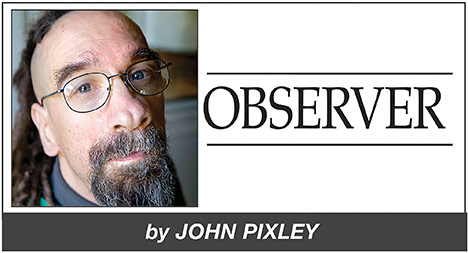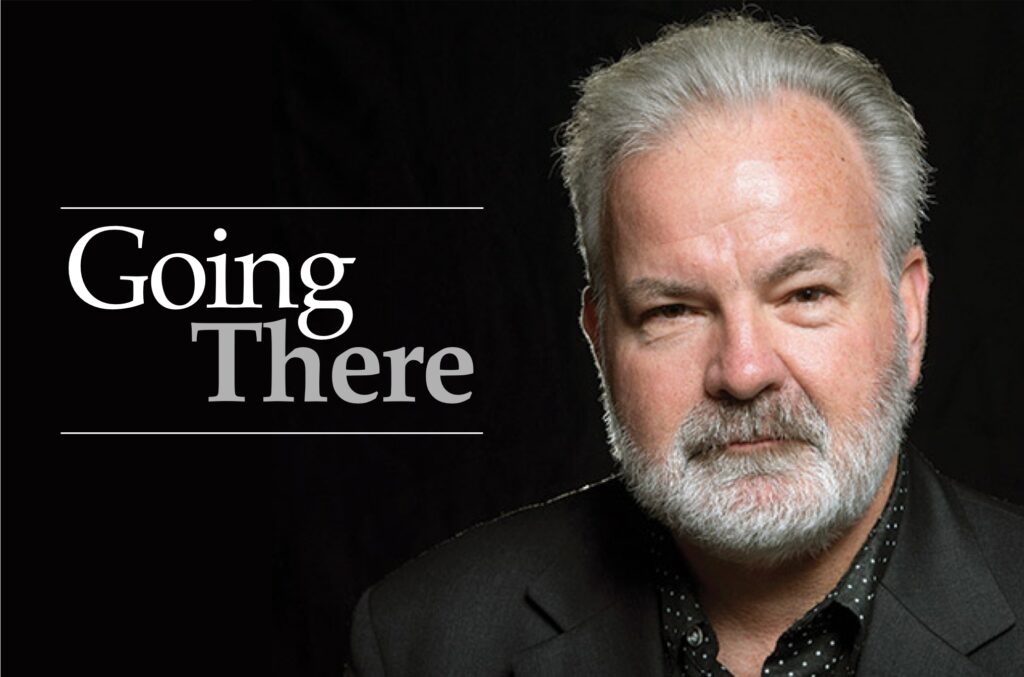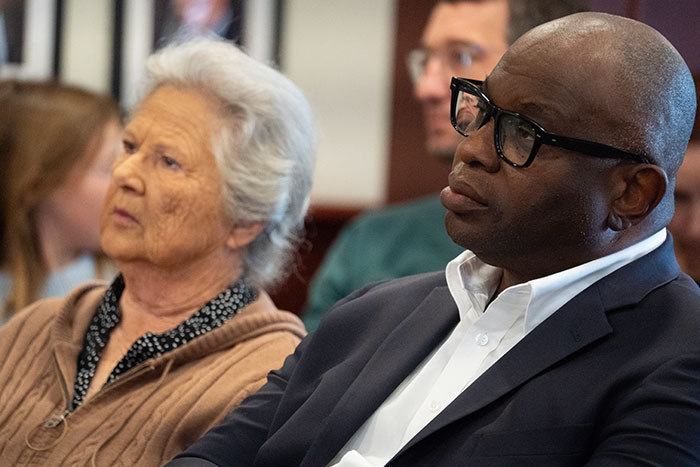Rushdie out, Heinzl in as CMC commencement speaker

Claremont McKenna College President Hiram Chodosh. Photo/by Anibal Ortiz
by Andrew Alonzo | aalonzo@claremont-courier.com
Nearly a week after reports that Salman Rushdie would deliver the keynote address at Claremont McKenna College’s May 17 commencement sparked outrage from students and civil rights groups, on Tuesday CMC President Hiram Chodosh announced the novelist had withdrawn from the job.
“This decision was his alone and completely beyond our control,” Chodosh wrote in a statement. “We remain steadfast in our commitment to Sir Salman’s visit to CMC and have extended an open invitation to him to speak on our campus in the future.”
Richard Heinzl, CEO of My Next Health Inc. and a key driver of Doctors Without Borders, is CMC’s new commencement speaker.
“Through his leadership and fieldwork, Dr. Heinzl has inspired thousands of medical professionals and illuminated the extraordinary stories of ordinary people, all in heroic response to the worst tragedies” it continued. “He founded the first North American chapter of the organization, Doctors Without Borders: Canada, and was a key figure in its global impact and recognition through the Nobel Peace Prize in 1999.”
CMC’s previous selection of Rushdie, an Indian-born British and American novelist criticized by some for what they contend are Islamophobic and anti-Palestinian views, drew criticism from the Claremont College Muslim Student Association.
“Commencement is meant to celebrate and unite the graduating class, not to platform a figure known for disparaging a global religious community,” read a May 2 statement posted on social media. “Protecting free speech is vital on campus, but platforming a speaker at a ceremonial event is an endorsement, not an act of open dialogue. This decision disregards the values of inclusion and respect that CMC claims to uphold. We ask people of all backgrounds to call on CMC to withdraw their invitation from this individual.”
Council on American-Islamic Relations Los Angeles Legal Director Amr Shabaik weighed in Monday in an email. “Our concern is whether students’ issues about Salman Rushdie’s appointment as the commencement speaker are heard and addressed by CMC leadership,” he wrote. “As the students have said, they would not have an issue if Rushdie were invited by a student group or by leadership for an open dialogue; Their primary concern is that platforming Rushdie during a commencement speech is an endorsement by the school of his beliefs and viewpoints, which have previously included a variety of Islamophobic statements and problematic statements on Palestine.
“Endorsing such a speaker without addressing any of the issues brought forward sends the message to Muslim students on campus that they are not welcome on campus and that the administration will disregard their needs. This is particularly concerning given the high rates of Islamophobia and harassment reported by Muslim students on college campuses. CAIR California’s recent Campus Climate Report,” viewable at ca.cair.com/publications/2024-campus-climate-report, “found that 49% of college students across California experienced harassment or discrimination due to their Muslim identity and that 65% of schools failed to address significant issues impacting Muslim students.”
It’s unclear how Rushdie’s name reached the top of CMC’s commencement speaker list. Chodosh did not respond to questions from the Courier about CMC’s decision to host Rushdie.
George Thomas, CMC’s Burnet C. Wohlford Professor of American Political Institutions, supported the college’s choice to invite Rushdie to campus.
“I think Rushdie is a brilliant choice to be our commencement speaker,” Thomas wrote in an email. “… But more than his talent as a writer, he’ll have life lessons to teach the graduates. He has been subject to religious violence for things he wrote — for fiction. He had to go into hiding and then, when it looked safe, was nearly killed for what he wrote. And yet he has endured as a writer. That’s remarkable.
“It’s somewhat surprising that the questions around Rushdie do not start with the religious violence perpetuated against him. He was condemned to death by the Ayatollah Khomeini of Iran for what he wrote in a novel — by a man whose country he did not live in and whose jurisdiction he was not subject to, for what he wrote in a work of fiction. Isn’t that offensive?”
CMC’s commencement schedule is at cmc.edu/commencement.









0 Comments